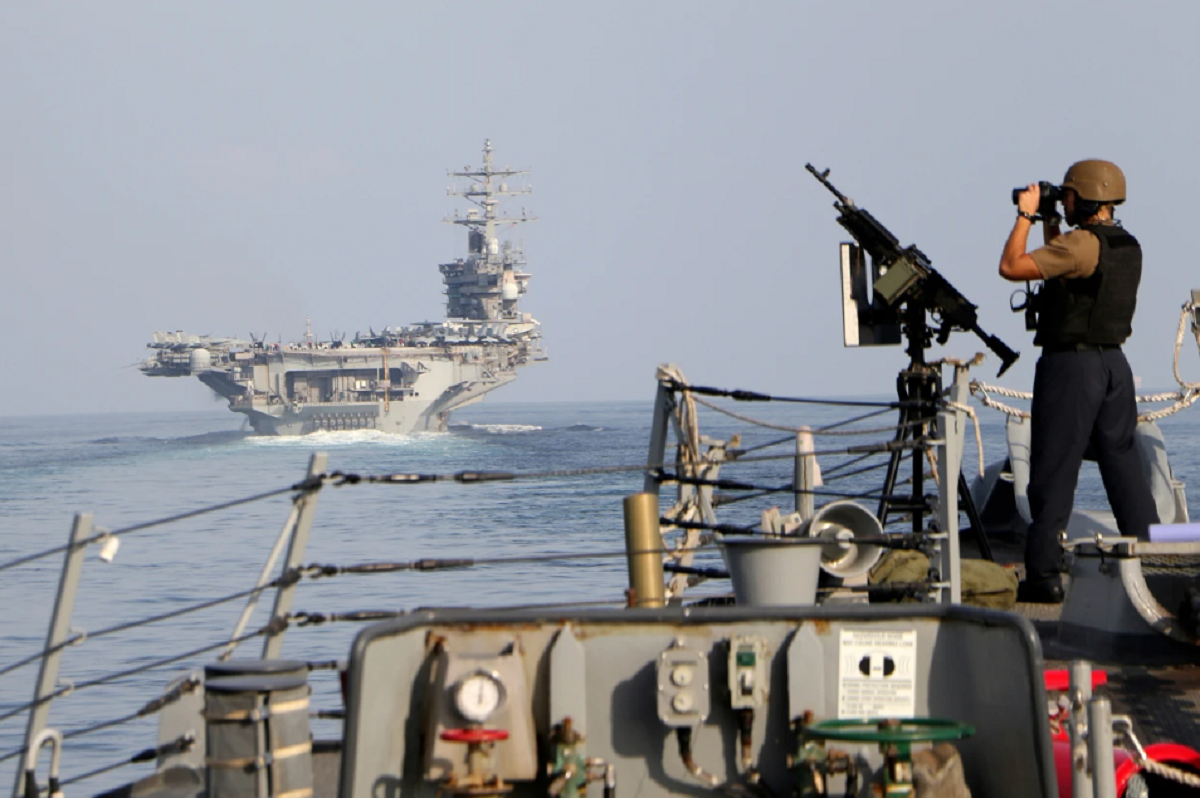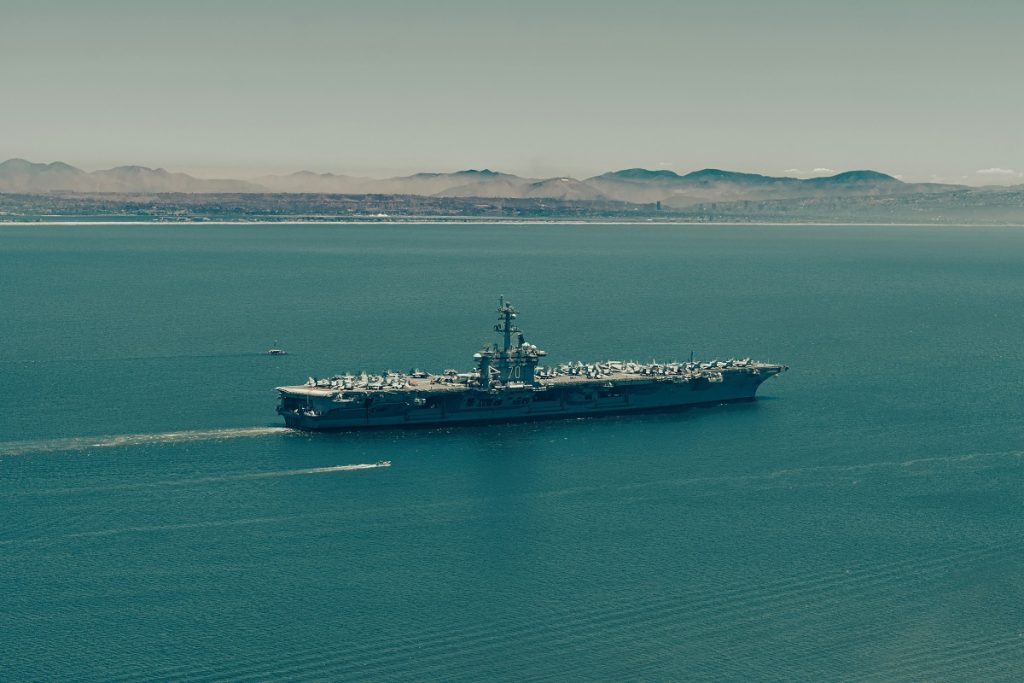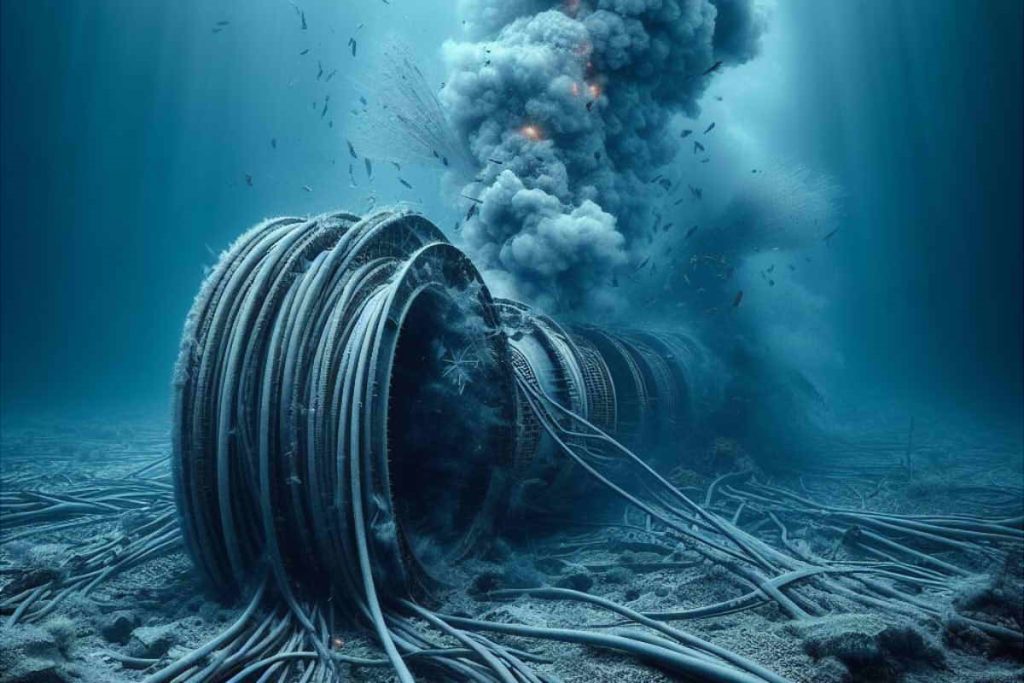
Preliminary outcomes of the Houthis war in the Red Sea, not too optimistic for the U.S.
By the beginning of July, we can clearly say with certainty that the terrorist war of the Houthis against the ships of states friendly to Israel, which began last December, will last at least as long as the confrontation in the Gaza Strip itself, and perhaps even longer. We can say with the same certainty that any operations of the U.S. and its allies against Ansar Allah cannot succeed and will not stop these attacks. Therefore, we can summarize the preliminary results of this confrontation for the world politics and economy. First, it is worth noting that the war with the Houthis has wreaked havoc on world trade in one month. Trade through Suez has collapsed by almost 70% since the beginning of December, and such a collapse was neither seen in 2008, nor during the fight against Somali pirates, nor during the COVID-19 pandemic.
In November 2023, nearly 6 million tons of cargos per week were moving through the Red Sea, but now the figure has fallen to 2 million and continues to fall. Expectedly, this has had an impact on global trade volume, which was already down 1.3% in December and 2.5-3% by the end of spring. For geographical reasons, Europeans have been hit hardest, with shipments of products from China and energy from the Middle East becoming sharply more expensive. Immediately after the events began, the Tesla plant in Germany closed for two weeks, although this was influenced by the strikes of farmers and railroad workers, which paralyzed the country. Chinese automakers and large retailers like IKEA, which depend on Chinese goods, started talking about shortages.
The problem could not be solved militarily, because the White House feared the escalation of war with the Houthis, so it warned them in advance of its first missile strike, which allowed them to prepare and avoid serious losses. But the Houthis, despite this “goodwill” and realizing Washington’s weaknesses, continued to attack the tankers without regard for Biden’s commands, who did not really know how to stop the crisis. And such indecision was actively mocked by Donald Trump, making it clear that such a crisis would not have happened under him or he would have firmly forced the Yemenis to peace and against the background of electoral threats, Joe Biden could not help but try to give a clear answer to this.

Photo by Aa.com.tr
That is why at the end of December, the U.S. pompously announced a plan to protect freedom of navigation called “Operation Prosperity Guardian”, but it immediately ran into a problem, which was that everyone wanted military protection, but no one was willing to provide it, which was typical behavior of U.S. allies in the EU. The military campaign against the Houthis had just begun but was immediately caught up in controversy. The Pentagon pounced with criticism, first of all, on the British Ministry of Defense, its main and most reliable ally, accusing Rishi Sunak’s cabinet of providing the enemy with information about missile strikes against the Houthis. Although London, like Washington, prepared the bombing of Yemen in secrecy and without consulting the House of Commons and the accusation was strange.
It should be noted that the leaking of information seems quite planned, and it again allowed the Houthis to prepare for the attack and hide their arsenals, but the culprits of this development of events, rather, seemed to be the Americans, who simply did not want to take responsibility and blamed everything on London. By the way, Iran was also ready for the strikes, which promptly withdrew its ship from the Red Sea, but Washington and London still blame each other for the failure of the operation, although everything was done in good faith in order to avoid escalation, while demonstrating to the public “strength”. In fact, it was unclear at the time what would happen next. In the face of U.S. passivity, the Royal Navy flatly refused to send even one of its two aircraft carriers to the Red Sea.
The reason was the acute shortage of sailors, and the fact that the number of recruits in the Navy in 2023 collapsed by as much as 23%. Therefore, entire destroyers have to be scrapped, and aircraft carriers are always under repair and cannot arrive in the Red Sea. In addition, the public division in the country was worsening, and in London, almost at the same time, the first major rally of 2024 against the war in the Middle East took place, where 200, 000 demonstrators demanded to stop the conflict in Gaza, stop bombing Yemen and declare an immediate truce. In the U.S., similar protesters surrounded the White House and even attacked Biden, accusing him of supporting genocide. It was impossible not to react to that, too.

It goes without saying that the missile strikes on Yemen intensified the rift within the U.S. The White House, after only a long pause, decided, along with Rishi Sunak’s cabinet, to strike at the infrastructure of the Houthis. Although Biden had long refused to get involved in Yemen for fear of escalating war in the Middle East, which would be disastrous for U.S. policy in the region, which was based on “soft power,” even though it had long been ineffective. Republicans rushed to blame Biden for attacking the Houthis too late, allowing them to amass forces to engage drones and missiles against U.S. bases. Plus, the Houthis may well hit Saudi Arabia’s oil infrastructure, which would send oil prices above $100 a barrel and plunge the U.S. into recession.
And Biden’s fellow party members, from the circle of left-leaning Democrats, in turn, lashed out at the White House for launching the war without congressional authorization. Ro Khanna, Rashida Tlaib and Barbara Lee called it a direct violation of the U.S. Constitution and an abuse of presidential authority. Under Vietnam War-era law, the U.S. president has the authority to engage in a conflict without congressional approval for up to 60 days, though many consider it unconstitutional.
But Biden specifically did not seek congressional approval, realizing that against the backdrop of division and budget wars, the issue of coordinating an attack on the Houthis would drag on for a long time. At the same time, the scandals around the Pentagon continued to rage, and not only Lloyd Austin met the beginning of 2024 not at his workplace. Thus, his first deputy, Kathleen Hicks, suddenly went on a beach vacation to Puerto Rico. And although they chose the best time to go on vacation, it was already clear that the U.S. was not ready for war morally, politically and technically, which was confirmed by further events in the Red Sea, which could be characterized by the word “passivity”.

Amid the helplessness of the Western military, the war with the Houthis has caused a massive logistical crisis. For example, the black tea market has fallen victim to it. 75% of tea is exported by India, Sri Lanka, China and Kenya. Now, because of the Houthis attacks in the Red Sea, tea supply disruptions are beginning in earnest. British supermarkets have started warning of a shortage of black tea. Ships have to bypass Africa, and this lengthens the route and cost by 40%. On top of that, there are now not enough ships to ship everything, and some tea exporters have goods hanging up in Mumbai for weeks while they try to negotiate transportation routes and insurance costs. And it’s not limited to tea alone. Half of all furniture, children’s toys and white goods enter Europe via Suez.
Marks & Spencer is facing delays in updating its clothing range, Ikea is having problems, and Tesla’s factory in Germany, as we have already written above, has temporarily suspended operations. Supplies of coffee, fresh fruit and vegetables have also been hit. In the UK, this is exacerbated by the fact that the country imports almost everything it needs. A year ago, it already faced a similar shortage of tomatoes, and now there are also problems with a shortage of white fish due to the sanctions war with Russia and the closure of the Barents Sea for British fishermen. And the Red Sea transportation crisis has once again shown that the British economy is overly dependent on external factors. The British economy fell in Q3 2023 and is already in a de facto recession, with all EU economies moving behind it amid the transportation crisis.
The first serious consequence of the war with the Houthis was the apparent confusion in the U.S. financial sector. At its first meeting in 2024, the Fed flatly refused to lower the key rate from the current 5.5%. The reason was again growing inflation, which in December amounted to 3.4%, and although today it is already 3.2%, it does not change the general situation. This is why there was no rate cut at the next Fed meeting in March either. This is very negative news both for the financial markets, which were hoping for a quick return to low rates and cheap credit, and for the U.S. economy as a whole. Commercial real estate is especially under attack as it collapsed by 30% in 2023. Regional banks have been shaken again. New York Community Bank with assets of $118 billion, the 34th largest in the U.S., was hit.

Moreover, it received the assets of Signature Bank, which went bankrupt a year ago. But now NYCB is also growing losses due to a large number of “unsafe” bonds, and the bank’s capitalization fell by as much as 40% in a couple of days. Fed Chairman Jerome Powell is trying to play the good game and the bad game at the same time, assuring Americans that the banking sector is in good condition, as long as they don’t run to withdraw their deposits from banks. But, as long as the rate remains exorbitantly high, the U.S. financial sphere will continue to deteriorate. While rising prices are linked to global and long-term economic factors, there are more and more reasons for rising inflation, and many of them are indirectly linked to the Houthis. The cost of freight in the Red Sea has quadrupled, and the bombing of Yemen has rather emboldened the Houthis and they are now promising to expand the war zone. And now the activity of the Houthis, followed by Iran, could lead to financial turmoil in the U.S. and another banking crisis, which is the price to pay for the global nature of the world economy.
By February, Yemeni rebels were threatening not only to continue attacking ships, but also to start cutting undersea Internet cables. The Houthis’ actions have already caused a real crisis for all global commerce, and now telecommunications and finance are next in line. The cables in the Red Sea carry 17% of all internet traffic on the global network. Just recently, 6 years ago, there was laid a powerful cable AAE-1 with a length of 25 thousand kilometers, which connects the Indo-Pacific region with the Middle East and southern Europe. Any damage to the internet cables in the Red Sea will instantly hit the communications of Europe and Asia. This would cause serious problems for the global financial system, which requires constant uninterrupted data transmission for markets to function.
Conducting such an underwater operation is difficult but, as the U.S. intelligence community believes, possible for the Houthis. In 2021, a cable near Australia was damaged and took two weeks to fix. But the Houthis are able to hit the repair ships, keeping them away from the damaged cable. Well, the Western coalition can’t do much about the Houthis. Bombing is pointless, they do not touch the underground infrastructure, and they cannot reach an agreement with Iran. The British have refused to send aircraft carriers, as many other less important countries have refused to send smaller ships. And the U.S. is finding it increasingly difficult to keep ships off the coast of Yemen, while a divided Congress is blocking the allocation of tranches to help the U.S. troops in the Middle East, and the Houthis successfully overwhelm a Pentagon torn between all the conflicts in the Middle East, Taiwan and Ukraine.

Photo by Zmscable.es
In the end, all the worst assumptions came true and the Houthis started an Internet war. In early March, Yemeni rebels cut three cables running along the Red Sea. The largest of them, Asia-Africa-Europe-1, launched by China Unicom in 2017, connects the Middle Kingdom and Singapore to the Middle East and southern Europe. AAE-1 carries 40 terabits of data per second. The Europe India Gateway cable, run by the UK and Gulf monarchies, at 4 terabits per second, and India’s TGN-Gulf cable were also affected. As a result, the volume of all traffic across the Red Sea has been reduced by 25%. This is a serious blow to the Internet infrastructure, because the share of traffic in the Red Sea from the global traffic is 17%. Access to many digital marketplaces also went down, and AT&T, which recently experienced an hour-and-a-half network outage, also had problems. It took many weeks to restore the cables, a timeline made possible because China was able to quickly negotiate with Iran for repairs. The Houthis, on the other hand, continue to raise the stakes. They now require ships to get permission to pass through the Red Sea and pay a commission for Yemeni “hospitality“.
It’s a very lucrative business and it’s sure to blossom amid the U.S. failure to influence the Houthis. And at the same time a powerful blow to the reputation of the U.S., which has always tried to control shipping by its own rules with far-reaching consequences. But now there will be an increasing number of countries looking for an alternative to the U.S. Cold War 2.0 security umbrella.

